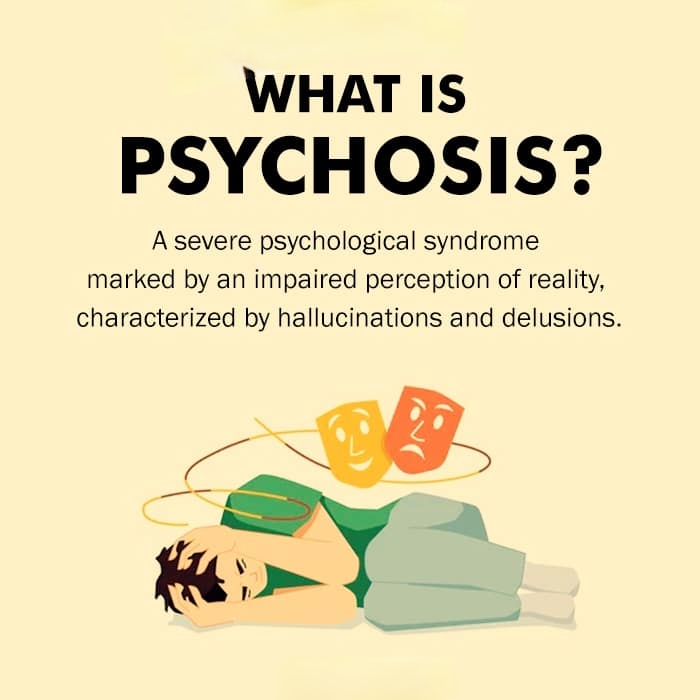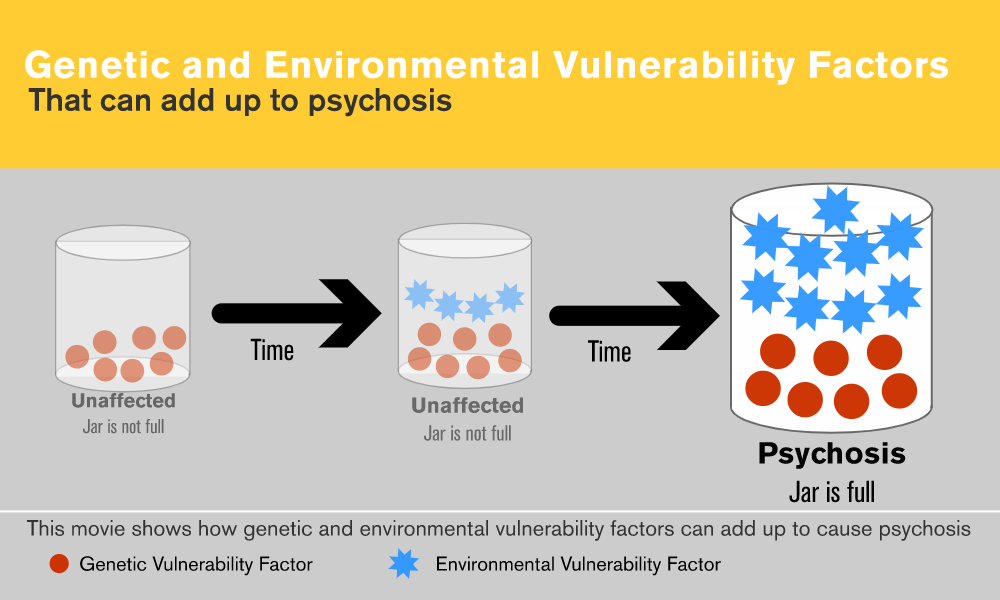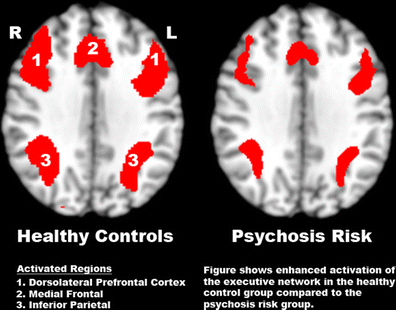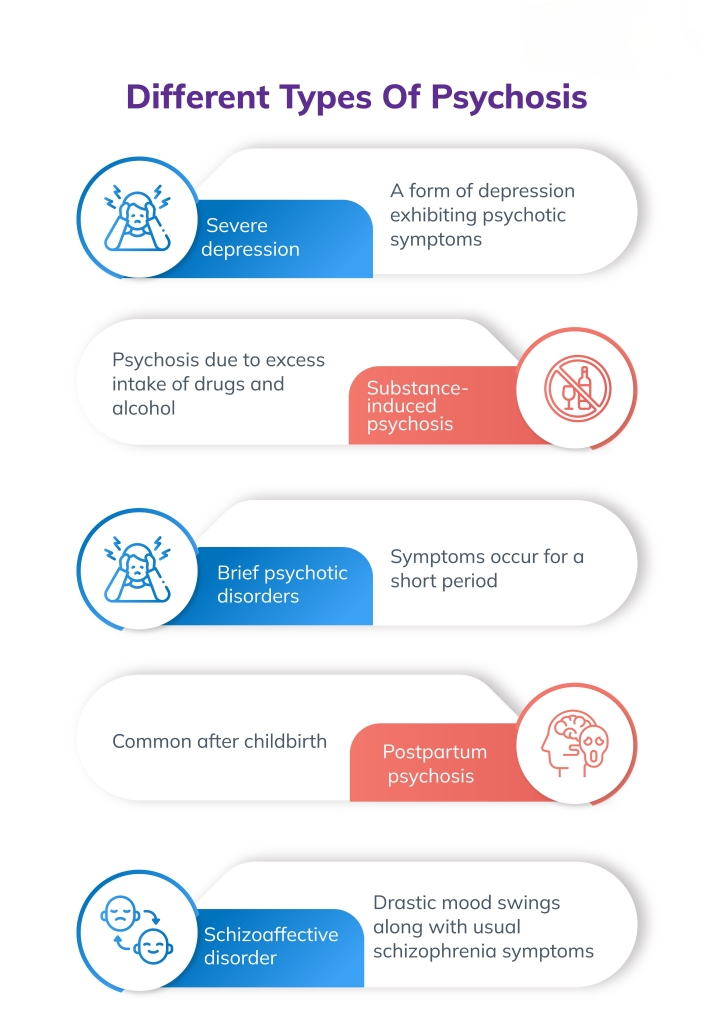
Long Time ,No Seeeee.Apologies to all my dear readers for publishing late, I was going through some emotional turmoil but now I’m back and we will together investigate and research, To all my lovely readers ,Let’s beginnnnn💗
We all have gone through some of the difficult phases in life and while dealing with them ,we found ourselves on the verge of getting stuck in dreams,if’s, imaginations and deny the realities for a while till we don’t settle right.But what if these denials of reality become,”A Forever thing” and now you don’t have sense of reality,you lost all the contact with reality then comes psychological term called,”Psychosis“. Psychosis is very vast topic and to understand that needs lots of focus and attention,Thus, my intelligent readers get ready for the readers’ ride with me…..
What is psychosis?

Psychosis refers to a loss of contact with reality. Hallucinations and delusions are its most common symptoms. Psychosis is present in many conditions, including schizophrenia and bipolar disorder.

People with psychosis may experience disruptions in their thoughts and perceptions, causing them to see their world differently. It is a common symptom in many medical and neurologic conditions.
Psychosis can affect anyone. According to the National Alliance on Mental Health (NAMI), 100,000 young people in the United States experience psychosis every year. At the same time, up to 3 in 100 people will have an episode in their lifetime. According to IJP in India,The study found a lifetime prevalence of schizophrenia spectrum disorders at 1.41%, with a current prevalence of 0.42%. A substantial treatment gap of 72% existed for current cases, rising to 83.3% in urban non-metro areas. The penalized logistic regression revealed that the age group category of 30–49 years, unemployed status, and lower education level had higher odds of association with schizophrenia spectrum disorders.
Psychosis, a person’s thoughts and perceptions. It alters how they process information, making it difficult to determine what is real from what is not.
Psychosis feels or appears real to a person. The Diagnostic and Statistical Manual of Mental Disorders, Fifth Edition (DSM-5) states that a person may not be aware that they have psychosis. It can be overwhelming and confusing.
People with psychosis may hear, see, smell, taste, or feel things that are not there. They can also hold strong beliefs or bizarre ideas, such as that someone is out to get them or that someone is monitoring their activities when these are not the case.

Sometimes, the symptoms can cause the person to harm themselves. In rare cases, they may hurt another person.
Psychosis is one of the key symptoms of schizophrenia and other psychotic disorders. According to the DSM-5, it also co-occurs with many mood and substance use disorders.
Symptoms of psychosis

Depending on the cause, psychosis can appear quickly or cause slow, gradual changes in a person’s thoughts and perceptions. It can also be mild or severe.
In some cases, it may be mild when it first appears but become more intense over time. While psychosis includes a range of symptoms, it often involves one of two significant experiences.
The below sections explore the early signs of psychosis and two common symptoms in more detail.
Early signs
Early or first-episode psychosis (FEP) is the period when a person first begins to experience psychosis. The symptoms can be difficult to distinguish from typical behavior. These include:
- a significant drop in job performance or school grade
- difficulty concentrating or thinking clearly
- uneasiness or suspiciousness around others
- lacking emotions or having strong, inappropriate ones
- social withdrawal
- sudden decline in self-care or personal hygiene
The DSM-5 states that psychosis involves abnormalities in one of the following categories or domains:
- Hallucinations: Experiences a person perceives to be real despite the lack of stimulus to cause them.
- Delusions: False beliefs that a person holds despite a lack of evidence or proof.
- Disorganized thought: Having thoughts that are not logical, unrelated, or loosely connected. A person’s thought process may drift away from the topic. Their speech may make no sense to others.
- Catatonia: The person may become unresponsive or oppose stimuli (negativism) or present with unintentional movements or activities that lack purpose (catatonic excitement).
- Disorganized behavior: Unpredictable or inappropriate emotional responses that are not in line with the situation.
- Negative symptoms: A decline in emotions, words, movements, or motivation (anhedonia).
Hallucinations
Hallucinations may cause a person to see, hear, feel, taste, or smell something that is not there. Of these, auditory hallucinations appear to be the most common.
A person with auditory hallucinations hears things and believes them to be real when they do not exist.
A person may incoherent sounds or distinct voices. They can perceive them to come through the ears, anywhere external to them, or in their mind.
Hearing voices may be very distressing, especially when they are commanding, derogatory, haunting, or threatening. It can affect a person’s actions and cause them to harm themselves or others. It may also cause a person to attempt suicide.
Delusions
A person may also experience delusions during a psychotic episode. The most commonly encountered types of delusions include:
- Erotomanic delusions: The belief that another person is in love with them.
- Delusions of grandeur: A strong belief that the person has a special power or authority.
- Thought broadcasting: The belief that the person is broadcasting their thoughts and that others can perceive them.
A person may also experience:
- depression
- anxiety
- social withdrawal
- lack of motivation
- overall difficulty functioning
- difficulty focusing
- sleep problems
How long can psychosis last?

Psychosis is not an illness in and of itself. It is often a symptom of another condition. To determine what may be causing the psychosis, a doctor will perform a thorough history.
This includes understanding the person’s personal, family, medical, cultural, social, and religious history. They will also ask about the person’s psychotic symptoms, including their course, duration, and severity.
The doctor will conduct a physical examination, including a mental and neurological exam.
If the signs and symptoms suggest an underlying medical condition, a doctor may request tests, including:
- complete blood count
- metabolic profile
- thyroid function tests
- urine toxicology testing
- measurement of parathyroid hormone, calcium, niacin, vitamin B12, and folate
The doctor may also consider testing for HIV and syphilis. Brain imaging is often not necessary except when the person presents with a new, severe headache, a history of recent significant head trauma, or focal neurological deficits.
They may also do tests to rule out other factors, including:
- the use of drugs or other substances
- a head injury
- other medical conditions, such as multiple sclerosis (MS) or a brain tumor
If the signs indicate a psychiatric cause, the doctor will refer to criteria from the DSM-5 to make a diagnosis.
Causes of psychosis

Psychosis can happen due to several factors. It may be a symptom of a mental condition. Psychotic disorders such as delusional disorder and schizotypical disorder share psychosis as a symptom.
Studies show that a combination of genetic and environmental factors can lead to psychosis. Certain environmental factors may increase a person’s risk for psychosis, including:
- maternal infections and obstetric complications
- maternal stress and malnutrition
- child abuse
- head injury during childhood
- migration
- drug misuse
Other causes of psychosis include:
- brain changes
- alcohol and substance misuse
- general medical conditions
- certain psychiatric and neurological conditions
- certain prescription drugs
- sex hormones
- lack of sleep
Traumatic events such as war, sexual assault, or death can also trigger a psychotic episode.
What happens in the brain?

The mechanisms by which psychosis occurs are not entirely clear, but many studies point to imbalances in the brain’s chemicals.
The positive symptoms of psychosis are associated with excess dopamine activity (a neurotransmitter related to mood), as well as a decrease in the activity of receptors for glutamate (another neurotransmitter).
Some studies also point to imbalances in the activity of gamma-aminobutyric acid (GABA) and acetylcholine.
Types of psychosis

Treatments for psychosis

CONCLUSION

This is often said,”when difficult times arrive ,even our own shadow gets lost”. Thus, when your loved ones are losing contact with reality ,you become their roadmap for the roads which leads to their real self. If Psychosis can blurrs the reality then your kind support and compassion becomes the key for your loved ones to be in real world. Hold those hands very tight and make them believe you exist and they exist too.❤️
–by Cheenu Singh Sisodiya
(Psychologist)
